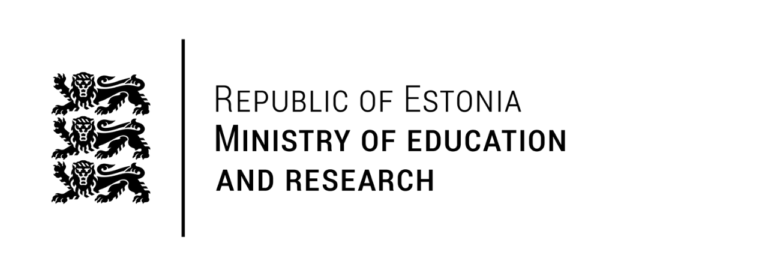Education experts from different countries shared lessons and challenges of distance learning on I-HUB4Schools webinar. The keynote speaker of the webinar was Prof Rose Luckin, who gave an overview of a recent distance learning survey on how to support educational ecosystems through technology.
The main focus of the ‘Shock to the System: Lessons from Covid-19‘ survey, carried out by prof Rose Luckin, with her team from UCL Knowledge Labs, was how different stakeholders in education, as parents, leaders, educators, Edtech companies, and policymakers experienced changes during the pandemic.
See also: Survey: distance learning from children’s perspective
One key finding was that too little attention was paid to the whole ecosystem. Ineffective connections and communication (such as between government and school leaders) compromised the entire system’s integrity and disabled it from being self-supporting. And not all education community members experienced COVID-19 disruption in the same way. Studying the differences enabled researchers to identify five distinct personas: Aeronauts, Earth movers, Fire tamers, Water pilots and Space seekers.
What changed most during the pandemic?
On the positive side, parents who felt that communication from school leadership was clear were ten times more likely to feel confident about their school’s handling of the disruption. Communication between Edtech companies and schools improved. Educators, their leaders, and parents were all engaged in trying new technologies. Teachers adapted to the pandemic remarkably quickly and supported each other.
But, Educators were hindered by a disparity in technical infrastructure between different schools. 71% of state school children received no daily online lessons or received less than one. Secondly, trust between technology companies and the education community was weakened when companies did not consider safeguarding issues due to the urgency of getting schools online. Safeguarding was a priority for most of the educators we interviewed.
And thirdly, the trust and lack of effective communication by policymakers left headteachers confused. This forced leaders to make decisions based on incomplete advice and guidelines.
Data and AI literacy are crucial
What might this look like in the future? The future is for AI and data collecting in education to make education more personal. Technology (especially AI) can best be developed through connecting cross stakeholder communities and enabling the ecosystem. This all requires a change of mindset!
Country perspectives: lessons from distance learning
Estonia
Eve Eisenschmidt, Tallinn University
Distance learning readiness was higher for the schools where teachers already used digital learning materials and arranged independent learning days for students. Routines and habits to use data for decision making predict coping with leadership during distance learning and help schools to cope better. Joint discussions and collaboration with parents were critical. Collaboration and evidence are essential!
See more: Distance learning: how is e-Estonia doing it? Tips and recommendations
Finland
Minna Lakkala, University of Helsinki
Distance learning improved teachers’ and students’ digital skills significantly. Especially handy were remote staff meetings which increased participation possibilities. The use of digital learning methods and platforms for individualized learning increased during the pandemic. Also, the support of self-regulation increased. Schools got digital and pedagogical support (tutor teacher model in Finland).
The recommendations for the future were to enhance collegial teacher networks as sharing of open learning materials and team teaching, and to local authorities to be prepared to support schools for distance and hybrid teaching and learning.
Norway
Ingvild Vikingsen Skogestad, Knappskog school
The situation at fully digital Knappskog school: the school has one-on-one coverage with digital units and digital technologies, primarily used for teaching. The focus was on educational classwork. Digital devices are only tools and students are the centre of education. The teachers were in contact with the students daily and had daily or weekly schedules. But it was challenging to involve students who were at home alone. Despite good follow-up, it wasn’t easy to ensure that everyone kept up. And no need to mention – everyone missed social interaction.
The text continues after the video.
Georgia
Tamar Siradze, Batumi Shota Rustaveli State University
In the first phase, schools started to use Zoom or Teams for lessons. As schools had never used distance learning in Georgia before, the main problems were the availability of digital equipment and Internet frequency. These challenges made interaction between teachers and students more difficult, and parents were less involved.
During the pandemic, the government provided social help programs, the most important of them 1TV Public Broadcaster’s TV School – simulation of school in front of the TV. TV School has continued since then as it has been so successful.
Lithuania
Vaidas Bacy and Vida Šarauskienė, Dubysos Aukštupis School
Challenges were pretty much the same as in most countries: lack of equipment, Internet frequency, lack of skills, teachers experience etc. Many educators even left their jobs due to the pressure.
Lithuanian national agency spent 2 million euros to buy digital devices for schools. Many new opportunities were discovered: new ways to work with students, new forms of communication, and professional networks development. Many Lithuanian institutions (museums, cultural institutions, etc.) digitized materials for teachers.
The webinar 'COVID-19 as a Catalyst for Educational Change?' took place November 25, 2021 and was organised in cooperation with the Education and Youth Board of Estonia and STePS





